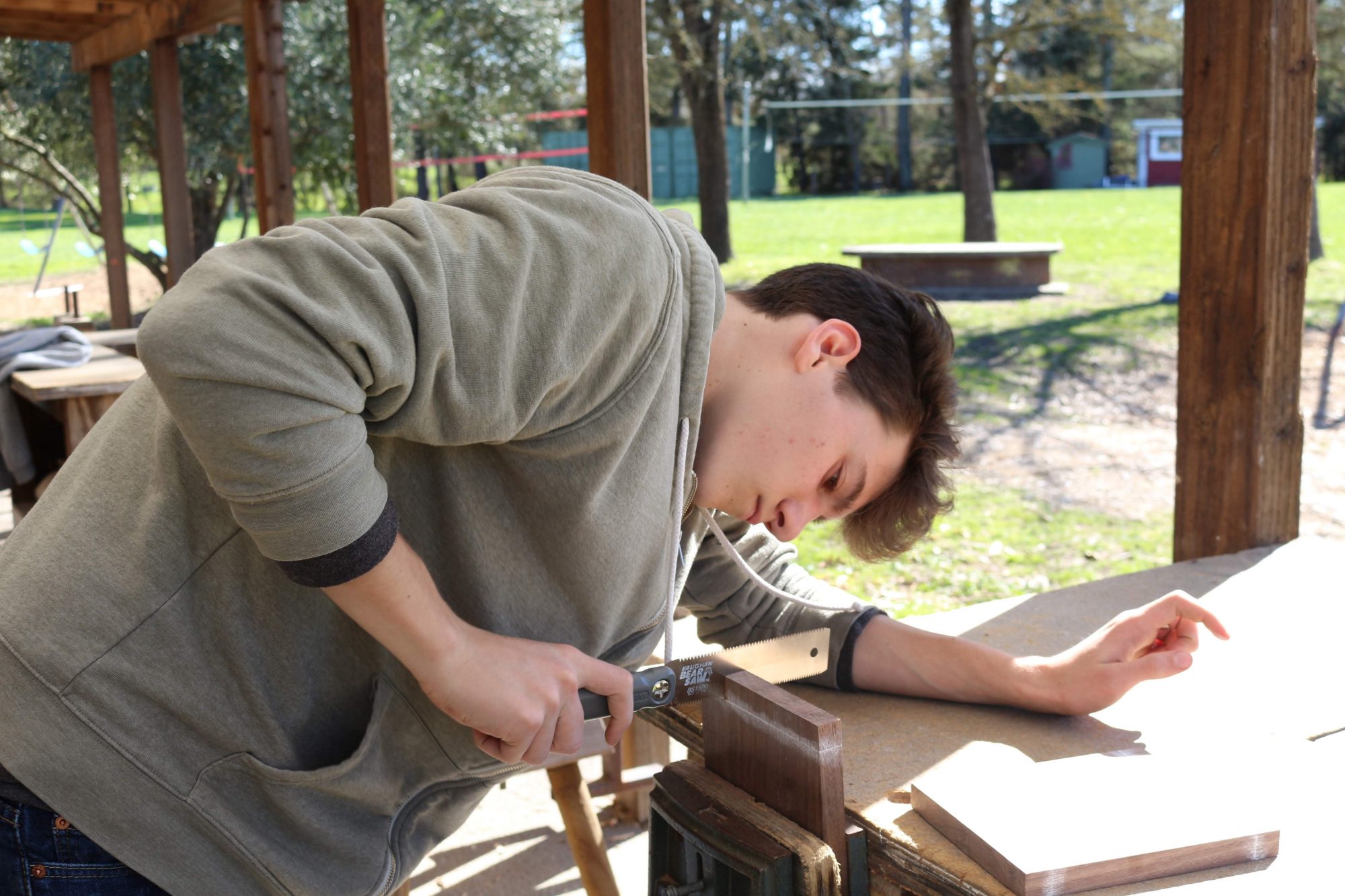How do we engage, really engage, our adolescent students in learning so that they take ownership in the work and learn for learning’s sake? By making lessons relevant and experiential, and by giving students the opportunity to chew on questions so that they can formulate their own conclusions.
Experiential learning is all about focusing on the student’s involvement or experience with the learning material. It’s how we learn every day as adults in our careers and in our lives and it’s the best way for older students to learn too.
We do this at Summerfield Waldorf School and Farm by taking an active approach to a subject’s lesson by having students approach material using different senses, tactics, and manipulatives to stimulate their interest in the topic at hand. Students are required to think critically and develop concepts out of their own experience. Answers are not handed to students to memorize, rather students are encouraged to discuss their experience and observations and develop their own conclusions.
Learning about botany through growing plants on the farm, about geometry by forming from pattern in woodworking, about Shakespeare by putting on a play are all examples of how our adolescent students are putting abstract topics into relevant light in the real world. Our students also challenge themselves socially and emotionally with Open Week Trips and Community Service projects, social justice issues and more.
This method of teaching is a natural and intuitive way to learn vs. a more traditional and passive, lecture-and-note style of learning most high school students experience. Learning in this way lends any lesson deeper meaning and develops critical thinking, which is so needed in our time as the New York Time’s podcast, The Daily, describes in “America’s Education Problem” describes.
Summerfield Waldorf School offers an academically in-depth experience that engages students in a comprehensive study of a variety of disciplines, including science, math, humanities, foreign language, music, drama and the arts. The curriculum is structured to not only foster knowledge needed to prepare for college admissions, but also to cultivate a deep understanding of subjects, independent thought, critical thinking skills, and a sense of ethical and moral responsibility.
Learn more by visiting us today. Email Tracy Saucier at tracy@summerfieldwaldorf.org to sign up for a High School visit day.

